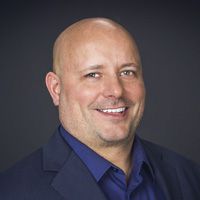Nearing Retirement? Ditch ‘Hidden’ 401(k) Fees
Your 401(k) may be costing you more than you realized. An in-service direct transfer to an IRA could be a game changer – if you qualify.


Profit and prosper with the best of Kiplinger's advice on investing, taxes, retirement, personal finance and much more. Delivered daily. Enter your email in the box and click Sign Me Up.
You are now subscribed
Your newsletter sign-up was successful
Want to add more newsletters?

Delivered daily
Kiplinger Today
Profit and prosper with the best of Kiplinger's advice on investing, taxes, retirement, personal finance and much more delivered daily. Smart money moves start here.

Sent five days a week
Kiplinger A Step Ahead
Get practical help to make better financial decisions in your everyday life, from spending to savings on top deals.

Delivered daily
Kiplinger Closing Bell
Get today's biggest financial and investing headlines delivered to your inbox every day the U.S. stock market is open.

Sent twice a week
Kiplinger Adviser Intel
Financial pros across the country share best practices and fresh tactics to preserve and grow your wealth.

Delivered weekly
Kiplinger Tax Tips
Trim your federal and state tax bills with practical tax-planning and tax-cutting strategies.

Sent twice a week
Kiplinger Retirement Tips
Your twice-a-week guide to planning and enjoying a financially secure and richly rewarding retirement

Sent bimonthly.
Kiplinger Adviser Angle
Insights for advisers, wealth managers and other financial professionals.

Sent twice a week
Kiplinger Investing Weekly
Your twice-a-week roundup of promising stocks, funds, companies and industries you should consider, ones you should avoid, and why.

Sent weekly for six weeks
Kiplinger Invest for Retirement
Your step-by-step six-part series on how to invest for retirement, from devising a successful strategy to exactly which investments to choose.
If you’re closing in on retirement — maybe five to 10 years away – you’re probably paying more attention than ever to your 401(k) balance and returns.
But when was the last time you took a hard look at how much you’re paying in “hidden” 401(k) plan fees?
Although the Department of Labor says plan sponsors must provide a breakdown of account charges at least once a year with a participant-fee-disclosure notice, many people never read theirs — or even the portion of their quarterly statements that contains information about expenses.
From just $107.88 $24.99 for Kiplinger Personal Finance
Become a smarter, better informed investor. Subscribe from just $107.88 $24.99, plus get up to 4 Special Issues

Sign up for Kiplinger’s Free Newsletters
Profit and prosper with the best of expert advice on investing, taxes, retirement, personal finance and more - straight to your e-mail.
Profit and prosper with the best of expert advice - straight to your e-mail.
That’s a mistake.
The goal of a 401(k), after all, is to save as much as possible for retirement. And that’s harder to do if, over time, high hidden plan fees keep nibbling away at that money, reducing the growth in your account.
How Much Can 401(k) Fees Cost You?
Even in the short term, from one year to the next, hidden fees can do some damage — especially if you manage to stash away a significant amount in a 401(k) or similar employer plan.
That doesn’t mean that you shouldn’t take advantage of the convenience of saving in an employer-sponsored plan or the opportunity to get matching contributions.
But if you’ve got $1 million in your 401(k), and your plan charges 1% of your account balance to cover its hidden fees each year (a typical amount), that’s $10,000 coming out of your 401(k) balance every year.
That’s not a nibble. It’s a bite. And some investors pay 1.5% or even 2% in hidden plan fees on 401(k) plan assets every year.
Could an In-Service Direct Transfer Help You?
Though you may be thinking of your account fees (if you were aware of them at all) as “the cost of doing business,” that’s not necessarily true. Even if you’ve been saving in the same plan for decades and have a healthy nest egg sitting in your 401(k), you may be able to cut your hidden plan fees.
In fact, if you’re 59½ or older, you likely have a strategy available to you that your younger co-workers don’t. It’s called an in-service 401(k) direct transfer, and it could make a lot of sense for you.
What’s an in-service direct transfer?
You’ve likely had friends who have transferred funds from a 401(k) to a traditional or Roth IRA when they left one or more jobs through the years. Or maybe you’ve done it yourself. Well, an in-service direct transfer works much the same way. If you’re 59½ or older, and your employer’s plan allows it, which most do, you can move your balance directly from your 401(k) to an IRA and enjoy several potential benefits, including:
- More control. With an IRA, you may have greater fee transparency. You’ll have to do your homework to be sure your new account is less expensive than your employer’s, but doing a direct transfer into an IRA could save you in hidden 401(k) plan administrative fees, mutual fund expense ratios and other hidden costs that can reduce your returns.
- More investment choices. IRAs generally can offer a wider range of options than 401(k) plans, which can be limited. So not only will you have a potentially better opportunity to comparison-shop for investments with lower costs, you may also be able to add more diversity to your portfolio as you move toward retirement. An IRA can put you in a position to invest in stocks, bonds, exchange-traded funds, real estate investment trusts, precious metals and more.
- It may make it easier to do a Roth conversion. Many 401(k) plans don’t have a Roth option, and many that do don’t have a Roth conversion option. But if you perform an in-service direct transfer to an IRA, you can perform Roth conversions if and when you choose.
- You can still contribute new money to your 401(k). If your employer offers a matching contribution, you can continue contributing to your 401(k) to get that money. Your account will remain open, so you can keep the convenience and benefits of your workplace retirement plan, but you’ve removed the effect of paying hidden 401(k) plan fees on your entire balance.
Get Some Answers Before You Act
Because different employer-sponsored plans have different rules, you should ask your plan administrator about eligibility and other requirements before you move forward with this strategy.
It’s also a good idea to discuss your concerns about account fees — and the strategies available to help reduce them — with an independent financial adviser.
Every financial decision comes with pros and cons, so you’ll want to thoroughly talk this one through. An adviser who has a legal obligation to look out for your best interests and can help you maximize your retirement plan savings … even if your retirement is just a few years away.
Kim Franke-Folstad contributed to this article.
Scott Tucker Solutions, Inc is an independent financial services firm that utilizes a variety of investment and insurance products. Investment advisory services offered only by duly registered individuals through AE Wealth Management, LLC (AEWM). AEWM and Scott Tucker Solutions, Inc. are not affiliated companies. 1122250 – 11/21
Neither the firm nor its agents or representatives may give tax or legal advice. Individuals should consult with a qualified professional for guidance before making any purchasing decisions. Our firm is not affiliated with or endorsed by the U.S. Government or any governmental agency.
Appearances on Kiplinger.com were obtained through a paid PR program. The columnist received assistance from a public relations firm in preparing this piece for submission to Kiplinger.com. Kiplinger was not compensated in any way.
Profit and prosper with the best of Kiplinger's advice on investing, taxes, retirement, personal finance and much more. Delivered daily. Enter your email in the box and click Sign Me Up.

Scott Tucker is president and founder of Scott Tucker Solutions, Inc. He has been helping Chicago-area families with their finances since 2010. A U.S. Navy veteran, Scott served five years on active duty as a cryptologist and was selected for duty at the White House based on his service record. He holds life, health, property and casualty insurance licenses in Illinois, has passed the Series 65 securities exam in 2015 and is an Investment Adviser Representative.
-
 Nasdaq Leads a Rocky Risk-On Rally: Stock Market Today
Nasdaq Leads a Rocky Risk-On Rally: Stock Market TodayAnother worrying bout of late-session weakness couldn't take down the main equity indexes on Wednesday.
-
 Quiz: Do You Know How to Avoid the "Medigap Trap?"
Quiz: Do You Know How to Avoid the "Medigap Trap?"Quiz Test your basic knowledge of the "Medigap Trap" in our quick quiz.
-
 5 Top Tax-Efficient Mutual Funds for Smarter Investing
5 Top Tax-Efficient Mutual Funds for Smarter InvestingMutual funds are many things, but "tax-friendly" usually isn't one of them. These are the exceptions.
-
 Social Security Break-Even Math Is Helpful, But Don't Let It Dictate When You'll File
Social Security Break-Even Math Is Helpful, But Don't Let It Dictate When You'll FileYour Social Security break-even age tells you how long you'd need to live for delaying to pay off, but shouldn't be the sole basis for deciding when to claim.
-
 I'm an Opportunity Zone Pro: This Is How to Deliver Roth-Like Tax-Free Growth (Without Contribution Limits)
I'm an Opportunity Zone Pro: This Is How to Deliver Roth-Like Tax-Free Growth (Without Contribution Limits)Investors who combine Roth IRAs, the gold standard of tax-free savings, with qualified opportunity funds could enjoy decades of tax-free growth.
-
 One of the Most Powerful Wealth-Building Moves a Woman Can Make: A Midcareer Pivot
One of the Most Powerful Wealth-Building Moves a Woman Can Make: A Midcareer PivotIf it feels like you can't sustain what you're doing for the next 20 years, it's time for an honest look at what's draining you and what energizes you.
-
 I'm a Wealth Adviser Obsessed With Mahjong: Here Are 8 Ways It Can Teach Us How to Manage Our Money
I'm a Wealth Adviser Obsessed With Mahjong: Here Are 8 Ways It Can Teach Us How to Manage Our MoneyThis increasingly popular Chinese game can teach us not only how to help manage our money but also how important it is to connect with other people.
-
 Looking for a Financial Book That Won't Put Your Young Adult to Sleep? This One Makes 'Cents'
Looking for a Financial Book That Won't Put Your Young Adult to Sleep? This One Makes 'Cents'"Wealth Your Way" by Cosmo DeStefano offers a highly accessible guide for young adults and their parents on building wealth through simple, consistent habits.
-
 Global Uncertainty Has Investors Running Scared: This Is How Advisers Can Reassure Them
Global Uncertainty Has Investors Running Scared: This Is How Advisers Can Reassure ThemHow can advisers reassure clients nervous about their plans in an increasingly complex and rapidly changing world? This conversational framework provides the key.
-
 I'm a Real Estate Investing Pro: This Is How to Use 1031 Exchanges to Scale Up Your Real Estate Empire
I'm a Real Estate Investing Pro: This Is How to Use 1031 Exchanges to Scale Up Your Real Estate EmpireSmall rental properties can be excellent investments, but you can use 1031 exchanges to transition to commercial real estate for bigger wealth-building.
-
 Should You Jump on the Roth Conversion Bandwagon? A Financial Adviser Weighs In
Should You Jump on the Roth Conversion Bandwagon? A Financial Adviser Weighs InRoth conversions are all the rage, but what works well for one household can cause financial strain for another. This is what you should consider before moving ahead.